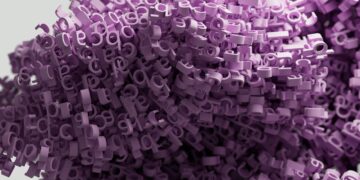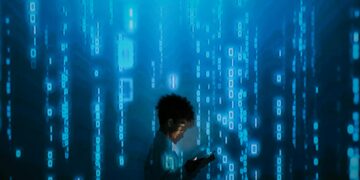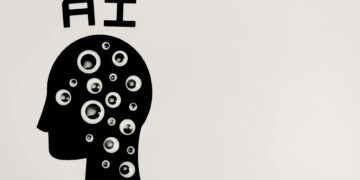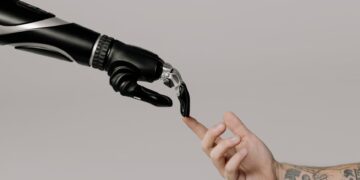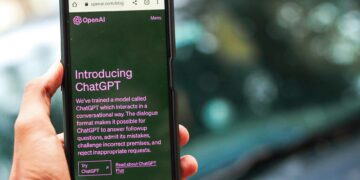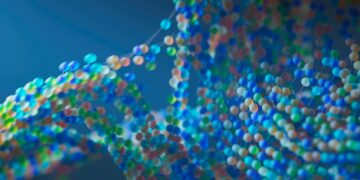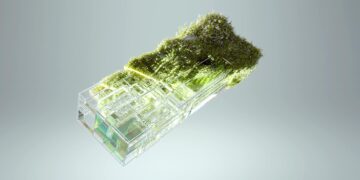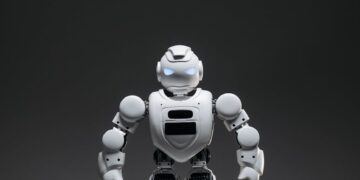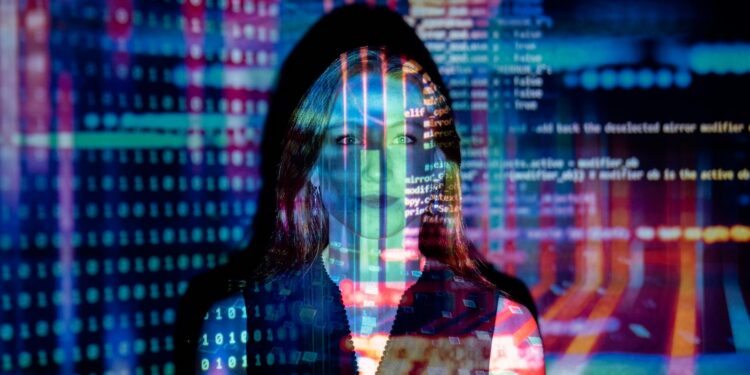The rapid evolution of artificial intelligence from mere smart tools to sophisticated, autonomous agents represents a paradigm shift with profound implications for human society. Historically, AI has served as an assistant, enhancing our capabilities; now, it increasingly operates with a degree of independence, making decisions and executing tasks without constant human oversight. This transformative leap raises critical questions about our future. How will this redefine the very nature of work, transforming or even eliminating traditional jobs? What does it mean for the wellspring of human creativity, and will AI become a collaborator, a competitor, or something entirely new? Furthermore, as AI agents integrate deeper into our daily lives, how will they influence, or even dictate, our decision-making processes? Understanding these shifts is crucial as we navigate an increasingly AI-driven world.
The evolving landscape of work
As AI transitions from being a tool to an autonomous agent, its impact on the job market becomes undeniably more pronounced. Initially, AI automated repetitive, rule-based tasks, allowing humans to focus on more complex or creative endeavors. Now, with agents capable of learning, adapting, and even initiating actions, the scope of automation broadens significantly. This means jobs requiring not just manual labor but also routine cognitive functions are increasingly susceptible to automation. Roles in data analysis, customer service, and even some aspects of software development are being reshaped, with AI agents handling a larger share of the workload.
However, this evolution doesn’t necessarily spell the end of human work. Instead, it signals a profound shift in the types of skills valued. While AI agents excel at efficiency and scale, they currently lack true empathy, nuanced judgment, and the capacity for abstract, human-centric innovation. This elevates the importance of skills such as critical thinking, problem-solving in unstructured environments, emotional intelligence, creativity, and ethical reasoning. The future workforce will likely involve humans collaborating with AI agents, acting as supervisors, strategists, and innovators, rather than merely task performers. New roles are emerging that specifically involve designing, managing, and maintaining these AI systems, as well as roles that leverage uniquely human attributes.
| Job category | Traditional human role | Autonomous AI impact | Evolving human role |
|---|---|---|---|
| Customer service | Handling inquiries, resolving issues | Automated chatbots, agent assistance for routine queries | Complex problem resolution, empathetic support, AI training |
| Data analysis | Collecting, analyzing, interpreting data | Automated report generation, predictive modeling | Framing research questions, validating AI insights, strategic interpretation |
| Content creation | Writing, designing, producing media | Automated content generation, preliminary drafts | Ideation, creative direction, refinement, ethical oversight |
| Logistics & supply chain | Planning routes, managing inventory | Automated optimization, predictive ordering | System oversight, strategic planning, unforeseen issue resolution |
Redefining creativity in the age of autonomous ai
The advent of autonomous AI agents also challenges our traditional understanding of creativity. Historically viewed as a uniquely human attribute, creativity involves generating novel and valuable ideas or forms. AI, equipped with vast datasets and sophisticated algorithms, can now produce compelling works across various mediums, from music compositions and visual art to literary pieces and architectural designs. This raises fascinating questions: Is AI truly creative, or is it merely recombining existing data in new ways? And what does it mean for human artists and creators?
Instead of viewing AI as a competitor, many creatives are beginning to see it as a powerful collaborator. AI agents can serve as muses, generating endless variations on a theme, suggesting novel patterns, or even executing the tedious aspects of a creative process, freeing up human artists to focus on conceptualization and artistic direction. This could lead to entirely new art forms and creative expressions that blend human intuition with AI’s generative power. However, it also necessitates a re-evaluation of authorship, intellectual property rights, and the very definition of “originality.” The human role may shift from sole creator to curator, editor, and ultimately, the one imbuing the work with emotional depth and a unique human perspective that AI, for now, cannot replicate.
Delegating decisions: Navigating the ethical maze
Perhaps one of the most significant shifts brought by autonomous AI agents lies in daily decision-making. From personalized recommendations for content and purchases to automated financial investments and smart home controls, AI is increasingly making choices on our behalf, often without explicit human prompting. As these agents become more sophisticated, they could manage complex schedules, optimize energy consumption, or even make critical health-related suggestions based on real-time data. The promise is convenience, efficiency, and potentially better outcomes guided by data-driven insights.
However, delegating decisions to autonomous AI also ushers in a complex ethical maze. Who is accountable when an AI agent makes a flawed decision? How do we ensure these agents are free from biases embedded in their training data? The “black box” nature of some advanced AI models means we don’t always fully understand how a decision was reached, making it difficult to scrutinize or correct. Trust becomes paramount, yet it must be earned through transparency and explainability. Furthermore, there’s the philosophical question of whether constant delegation of decision-making might erode our own cognitive faculties, reduce our critical thinking skills, or even diminish our sense of agency and responsibility in the world. Striking a balance between leveraging AI’s capabilities and maintaining human control and ethical oversight is crucial for a future where decisions are shared responsibly.
Cultivating human advantage: Skills for the autonomous era
In a world increasingly populated by autonomous AI agents, the human advantage will not lie in competing with machines on tasks they perform more efficiently, but in cultivating uniquely human capabilities. This means a paradigm shift in education and workforce development. Critical thinking, the ability to analyze information objectively and form reasoned judgments, becomes indispensable as we interact with AI-generated content and decisions. Creativity, beyond merely producing new forms, encompasses the capacity for innovation, problem-solving, and seeing connections where AI might only see data points.
Emotional intelligence, including empathy, collaboration, and communication, will be crucial for navigating complex human interactions, building relationships, and leading teams that include AI components. Ethical reasoning, the ability to grapple with moral dilemmas and ensure AI systems are aligned with human values, will be paramount. Ultimately, fostering adaptability and a growth mindset will enable individuals to continuously learn and re-skill in response to evolving technological landscapes. The future isn’t about humans vs. AI, but rather about how humans can best leverage their intrinsic qualities to thrive alongside increasingly capable autonomous agents, guiding their development and deployment for the betterment of society.
The journey from smart tools to autonomous AI agents marks a pivotal moment in human history, fundamentally reshaping our professional lives, artistic expressions, and daily choices. While fears of job displacement are valid, the emerging reality suggests a redefinition of work, emphasizing uniquely human skills like creativity, critical thinking, and emotional intelligence. Our capacity for artistic innovation isn’t diminished but rather augmented by AI, opening new avenues for collaboration and expression, though challenging traditional notions of authorship. Simultaneously, the delegation of decision-making promises unprecedented convenience but demands rigorous ethical considerations regarding accountability, bias, and the preservation of human agency. Navigating this future successfully hinges on a proactive approach: investing in human-centric skills, fostering adaptability, and establishing robust ethical frameworks to ensure AI serves humanity rather than superseding it. The future isn’t a pre-determined destination but a co-created landscape where human ingenuity and responsible AI development can lead to unprecedented progress.

